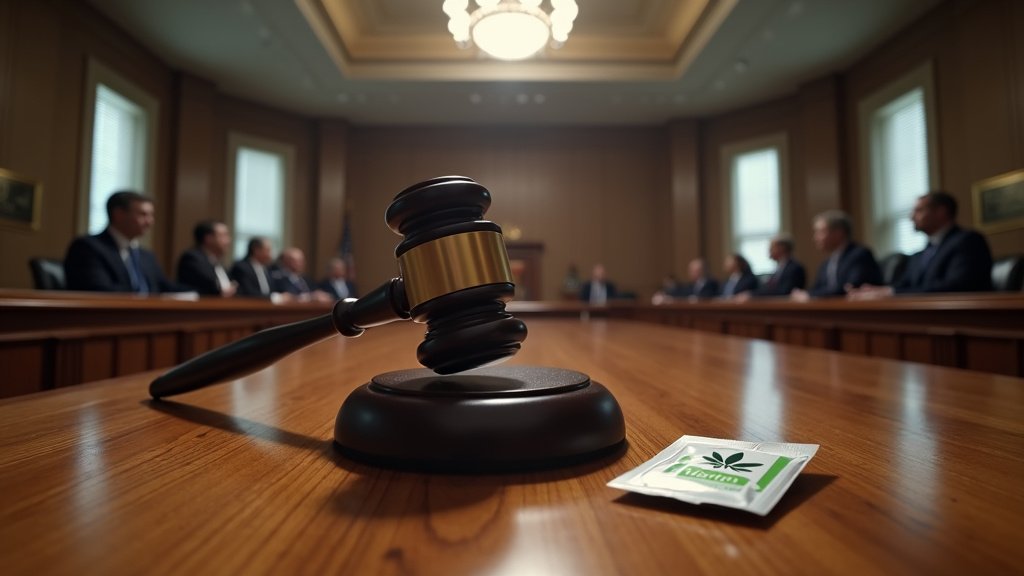Texas Senate Committee Doubles Down on THC Ban, Citing Regulatory Resource Concerns
HOUSTON, TX – A Texas Senate committee is moving forward with a proposal to ban products containing any detectable amount of THC, a move that has sparked debate and concern among lawmakers and industry stakeholders. The committee’s rationale centers on the perceived inability of state and local governments to effectively regulate these substances, a concern that could reshape the landscape of THC product availability in the state.
Bill Targets Hemp-Derived THC
At the heart of the issue is Senate Bill 5, which, if passed, would criminalize the possession of hemp-derived THC. The implications of this are significant, potentially leading to a variety of legal issues for individuals found to be in possession of products containing even trace amounts of the psychoactive compound. The bill’s proponents argue that the current regulatory framework is inadequate to ensure public safety and that a ban offers the most straightforward solution. This perspective underscores a broader conversation about the balance between consumer access and government oversight.
The focus on hemp-derived THC stems from the 2018 Farm Bill, which legalized hemp and hemp-derived products containing less than 0.3% Delta-9 THC by dry weight. This has led to a proliferation of products, many of which contain varying levels of other cannabinoids, including THC isomers that can produce psychoactive effects. The challenge, as the committee sees it, is that the state and local governments lack the infrastructure and personnel to monitor and enforce regulations surrounding these products effectively.
Resource Concerns Drive the Push
The primary driver behind the committee’s stance is the alleged lack of resources available to state and local entities. Regulating THC products requires robust testing capabilities, trained personnel to inspect businesses, and the ability to enforce compliance. The committee suggests that the complexities and costs associated with establishing and maintaining these resources are prohibitive, especially given the potential for an influx of new products and businesses related to hemp-derived THC.
This viewpoint contrasts with those who advocate for a regulated market. Proponents of regulation argue that a ban will not eliminate the availability of THC products but instead drive them underground, making it harder to control the quality and safety of what consumers are buying. They also highlight the potential economic benefits of a regulated market, including job creation and tax revenue.
Ongoing Debate and Future Prospects
The bill is currently under consideration by lawmakers. The debate is multifaceted, encompassing discussions about public safety, economic impact, and individual liberties. The legal ramifications of the proposed ban are also being scrutinized. Legal experts are analyzing the potential for challenges to the law, should it pass, as well as the practical considerations of enforcement.
The committee’s focus on regulatory resources highlights a recurring theme in debates about emerging industries. As new products and technologies enter the market, governments often struggle to keep pace with the need for effective oversight. This is particularly true in areas where the science is still evolving and public opinion is divided. The Texas Senate committee’s approach underscores a commitment to caution, prioritizing what they perceive as the capacity of government to protect citizens.
The future of the ban remains uncertain. The outcome of legislative deliberations will shape not only the availability of THC products in Texas but also the broader conversation about how states approach the regulation of cannabis-related substances. The debate is a microcosm of the ongoing national discussion about the evolving legal and social status of cannabis, highlighting the tension between public safety, economic opportunity, and individual rights.
As the legislative process unfolds, stakeholders will continue to lobby for their interests, and the public will watch closely. The ultimate decision will have a profound impact on businesses, consumers, and the legal landscape of the state.






